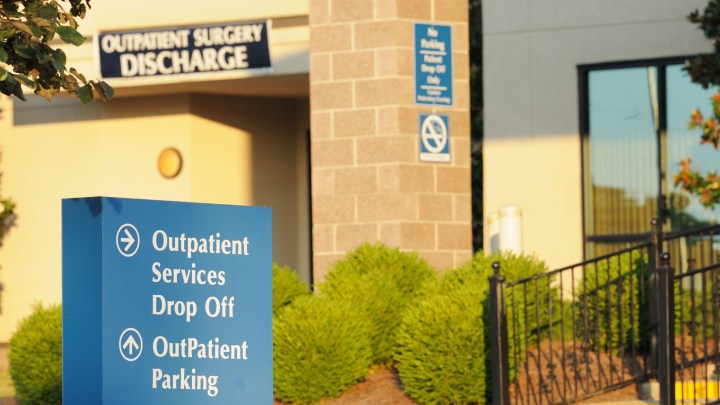
Congress is looking at changes to Medicare. Hospitals aren’t thrilled
Congress is looking at changes to Medicare. Hospitals aren’t thrilled

Congress is considering nearly half a dozen pieces of legislation centered on an obscure Medicare payment change that could save the federal government as much as $150 billion over the next decade. The proposed policy, known as “site-neutral payment,” would lower the prices Medicare pays hospitals for many common services, like X-rays and checkups, to match what it pays independent clinics.
Dan Gorenstein, executive editor of the health policy news organization Tradeoffs, has been taking a closer look at this. He joined “Marketplace Morning Report” host Sabri Ben-Achour to talk about it more, and the following is an edited transcript of their conversation.
Sabri Ben-Achour: OK, so boil this down: What is the ultimate problem that the government is trying to fix here?
Dan Gorenstein: So right now Medicare, the major federal insurance program for seniors, pays hospitals more than double on average what they pay independent doctors to deliver the exact same care.
Hannah Neprash: Medicare is currently overpaying in a way that they don’t have to be.
Gorenstein: That’s Hannah Neprash from the University of Minnesota. One example Hannah gave is a common shot people get to numb pain. Medicare shells out $255 if a community doc does it, but $740 If a hospital doc does it. And patients pay more too because they’re often on the hook for 20% of Medicare bills.
Ben-Achour: So can you lay out how exactly Congress is thinking about changing that or fixing that?
Gorenstein: Basically, they want to shut that gap. The boldest proposal out there could save the federal government about $150 billion over the next decade or so.
Ben-Achour: Well then, hospitals stand to lose billions. They’re obviously opposed to this change. But what’s their argument for why it’s a bad idea?
Gorenstein: Here’s how Ashley Thompson from the American Hospital Association put it to me.
Ashley Thompson: There is nothing neutral about site-neutral payments. A cut to hospitals means that they’re going to have to scale back on services and offerings in the community.
Gorenstein: Hopsitals say they deserve the pay bump, that the patients they see are sicker on average. Everyone we spoke to agreed hospitals should get more money when they do complex stuff. But the service is targeted here are pretty simple things — an X-ray, a round of chemotherapy, a checkup for that bum knee — services that a lot of experts argue clinics can do just as safely and effectively as a facility owned by a hospital.
Ben-Achour: You talked about this in your podcast, and you make the point that this policy change has actually even bigger economic implications than just how much money goes to hospitals. Can you explain those?
Gorenstein: A lot of economists believe this pay gap has contributed to the growing problem of market consolidation. And think about it: If one day a clinic makes $250 for a shot, and with a few tweaks, a hospital can convert that clinic into an outpatient facility and start billing three times more … that’s a pretty appetizing investment. The number of hospital-owned physician practices has more than doubled over the last decade. And all that doc gobbling, research shows, hurts competition and hikes prices.
There’s a lot happening in the world. Through it all, Marketplace is here for you.
You rely on Marketplace to break down the world’s events and tell you how it affects you in a fact-based, approachable way. We rely on your financial support to keep making that possible.
Your donation today powers the independent journalism that you rely on. For just $5/month, you can help sustain Marketplace so we can keep reporting on the things that matter to you.

















